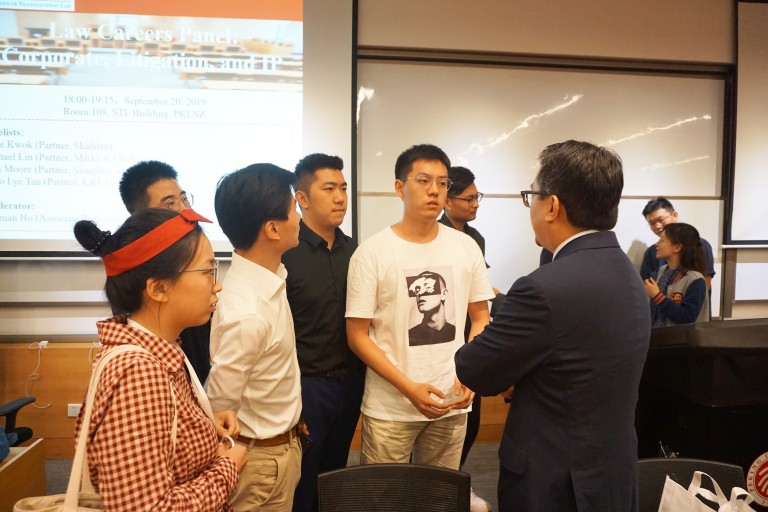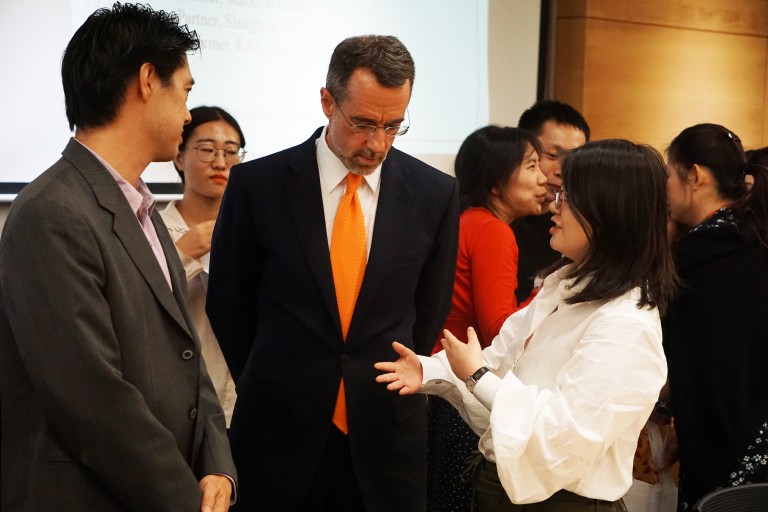The first law careers panel of the 2019-2020 academic year of STL was held on September 20 at Room 108. This panel was moderated by Professor Norman Ho and consisted of four leading corporate, litigation and IP partners from top law firms: Steve Kwok of Skadden, Michael Lin of Marks & Clerk, John Moore of Slaughter and May, and Choo Lye Tan of K & L Gates.
Steve Kwok’s (Skadden) practice areas include litigation, government enforcement and white collar crime, and cross-border investigations. Before he joined Skadden, he was the resident legal advisor for the U.S. Department of Justice at the U.S. Embassy in Beijing, representing the United States in dealings with Chinese law enforcement authorities on criminal matters, particularly corruption, money laundering and fraud cases. He also previously served as an assistant U.S. attorney in the Southern District of New York and clerked on the US Supreme Court (to Justice Anthony Kennedy).
Michael Lin (Marks & Clerk) manages the Life Sciences group in Marks & Clerk’s Hong Kong and Beijing offices. He provides IP-related services for companies in the pharmaceutical, chemical, bioscience, materials science, and mechanical fields. He once worked as a Patent Attorney at a large multinational FMCG Company specializing in pan-Asian patent matters in the chemical and mechanical fields.
John Moore (Slaughter and May) represents investment banks, corporations and private equity funds on capital markets, M&A and private equity transactions. He was a senior in-house counsel at Goldman Sachs. He also previously served as Deputy Chairman of the Listing Committee of the Hong Kong Stock Exchange.
Choo Lye Tan (K&L Gates) practices in the areas of securities, corporate finance, restructuring, mergers and acquisitions, funds and public and private equity issues. She is qualified to practice in a variety of jurisdictions, including Hong Kong, Malaysia, and Bermuda, and she is also a barrister in the UK. She frequently advises on cross-border transactions under offshore and Asian laws, particularly in the areas of asset protection, fund-raising, securities offerings, employment, and tax.
At the beginning, four partners shared one of their typical workdays. Michael Lin said that his workday usually begins with replying clients’ emails. As an IP attorney, he works around clients’ needs and may deal with different technical areas and legal issues each day, which is quite different from his previous in-house experience. Steve Kwok mentioned that for lawyers working in international law firms, in addition to daily legal research and writing tasks, it is common to communicate and coordinate with colleagues and clients in different time zones, and the working hours will be extended accordingly. John Moore said that as a lawyer specialized in corporate and capital market, his ultimate goal is to promote and facilitate transactions. His daily work changes depending on the specific stage of transactions. The daily work of Choo Lye Tan might include conference calls with clients, research on the market regulations, and providing clients with legal advice on multiple jurisdictions.
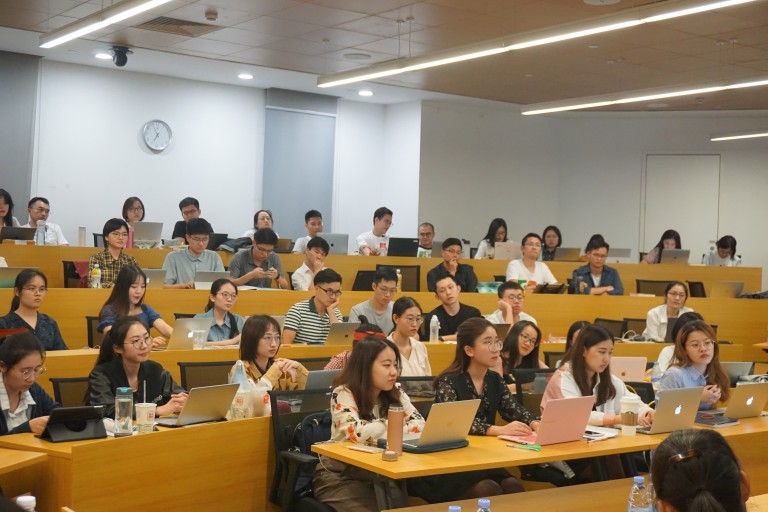
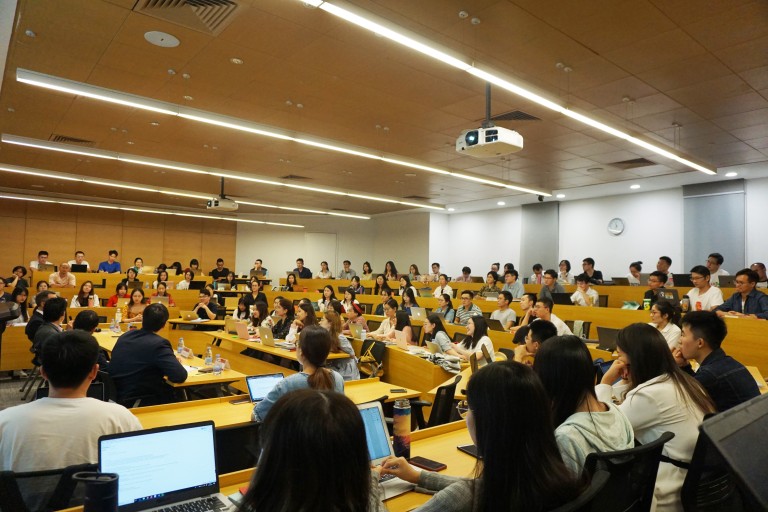
When asked about the reasons for choosing the current practicing areas, Steve Kwok believed that before making a choice, we need to consider what kind of lawyer we want to become. We should choose the field that we are interested in and good at, instead of solely focusing on the economic revenue. In terms of himself, he became a litigator because he likes to argue and to study in the handling of cases, which is also at his advantage. Michael Lin’s choice is connected with his educational background: he previously worked as a biochemist, and he was interested in both scientific theory and legal services, and naturally became a patent attorney. John Moore and Choo Lye Tan chose the current practicing fields for their interests in business. They mentioned that every individual company is the epitome of its industry and follows the business rules to guide their behaviors. Lawyers can be the storyteller of the company during their services. Choo Lye Tan also encouraged students to be open-minded and to find their own areas of expertise in their studies and practices.
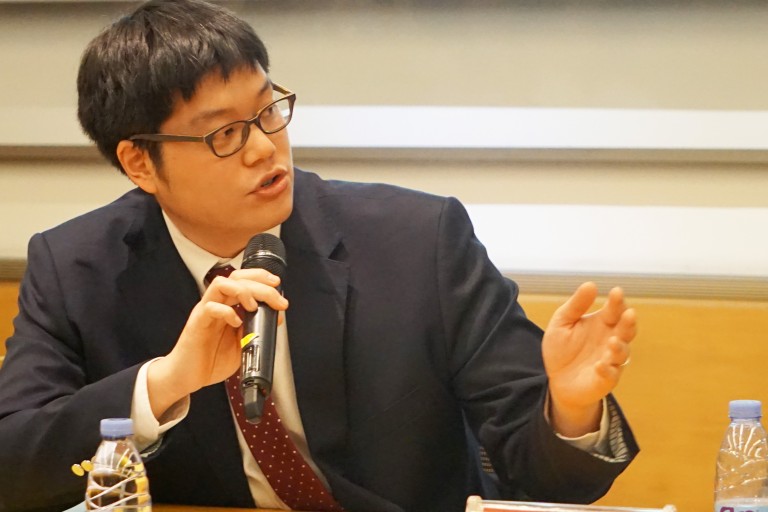
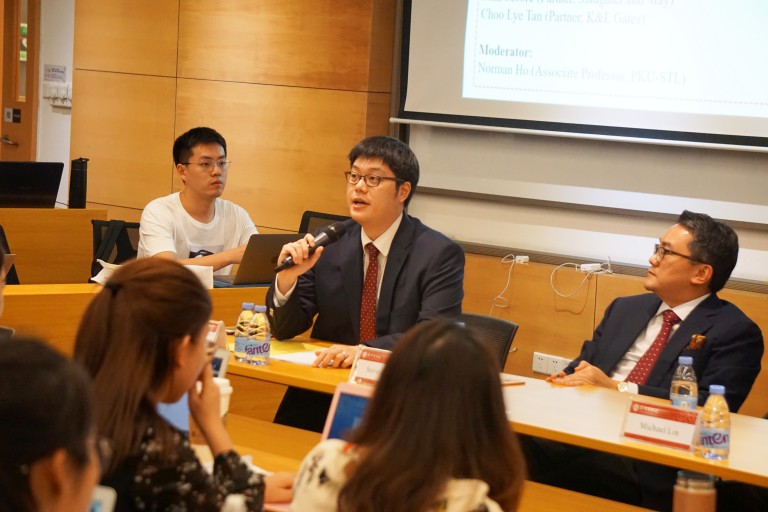
In the next open questioning session, the four lawyers gave patient and detailed answers to the questions that students were concerned about. When asked if the scientific background is a necessary requirement for an IP lawyer, Michael Lin believed that it depends on the requirements of clients, the regulations of different jurisdictions, and the specific practicing areas. When asked how Chinese lawyers can better engage in international legal affairs, Steve Kwok said that language and cross-cultural communication skills are essential, and lawyers should accurately understand clients’ needs and respond to and resolve them in ways that are acceptable to clients. Regarding the question of the career development of female lawyers, Choo Lye Tan replied that female lawyers should put their professional skills first and try to do their best as lawyers, rather than paying too much attention to the label of “vulnerable groups” or labeling themselves as “female” lawyers. In answering the certificates helpful for corporate lawyers, John Moore pointed out that the most important thing is to understand the company’s accounting information, and certificates like CPA and CFA are not necessarily required. In addition, the four lawyers gave their own advice on issues such as lawyers’ licenses and choice of worksite.
